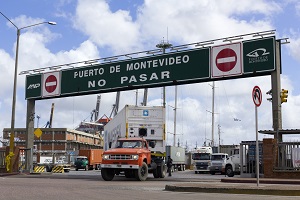Interesting facts about Uruguay in 2025?

- The Spanish arrived in present-day Uruguay in 1516. The Indians’ fierce resistance to conquest, combined with the absence of gold and silver, limited their settlement in the region during the 16th and 17th centuries;
- In 1603, the Spanish began to introduce cattle, which became a source of wealth in the region. In 2007, Uruguay had cattle herds totaling 12 million head, making it the country with the highest number of cattle per capita at 3.8. Beef and wool represent the main activities and main source of income for 65% of farms, followed by vegetable farming at 12%, dairy farming at 11%, hogs at 2%, and poultry at 2%. Beef is the main export commodity of the country, totaling over US$1 billion in 2006;
- With 176,214 km2 (68,037 sq mi) of continental land and 142,199 km2 (54,903 sq mi) of jurisdictional water and small river islands, Uruguay is the second smallest sovereign nation in South America and the third smallest territory. The landscape features mostly rolling plains and low hill ranges (cuchillas) with a fertile coastal lowland. Uruguay has 660 km of coastline;
- The Reporters Without Borders worldwide press freedom index has ranked Uruguay as 37th of 178 reported countries in 2010. Freedom of speech and media are guaranteed by the constitution, with qualifications for inciting violence or “insulting the nation”. Uruguayans have access to more than 100 private daily and weekly newspapers, more than 100 radio stations and some 20 terrestrial television channels and cable TV is widely available;
- Football is the most popular sport in Uruguay. The first international match outside the British Isles was played between Uruguay and Argentina in Montevideo in July 1902. Uruguay won gold at the 1924 Paris Olympic Games, and again in 1928 in Amsterdam. The Uruguay national football team has won the FIFA World Cup on 2 occasions. Uruguay won the inaugural tournament on home soil in 1930, and again in 1950, famously defeating home favorites Brazil in the final match;
- José Mujica, Uruguay’s president, is a vegetarian, and has been described as “the world’s ‘poorest’ president”, as he donates around 90% of his monthly salary, approximately $12,000, to charities to benefit poor people and small entrepreneurs;
- Uruguay is an active member of several regional blocs and one of the founders of the Andean Community of Nations. It is also a participant in international organizations such as the Organization of American States and the United Nations;
- The SAFI structure (Sociedad Anonima Financiera de Inversion) was a common legal entity chosen by entrepreneurs to conduct offshore business in Uruguay, but this is no longer in use since 2007.

